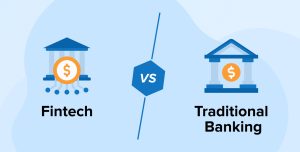Financial advisors provide clients with advice on investing, saving, retirement, and other financial matters. In the past, human advisors typically provided clients with tailored financial advice. With the advancement of financial technology, robo-advisors have emerged. User portfolios are created and managed by algorithms on these platforms. Now that both options exist side by side, many people are wondering which advisor is best for them.
How Do Robo-advisors Work?
Digital systems called robo-advisors can automatically invest. The initial questions are usually about the user’s financial goals, risk appetite, and investment plan. After receiving the answers, the software develops a diversified portfolio for the user. In addition to the initial setup, robo-advisors automatically manage portfolios. These platforms optimize returns through low-cost ETFs, automatic rebalancing, and tax-loss harvesting. Simplicity, price, and convenience make them very attractive.
Human Advisors in Financial Planning
Human advisors offer personalized financial planning. They work directly with clients to understand their personal lives and provide personalized advice that goes beyond algorithms. Human advisors handle estate planning, tax strategies, and unexpected wealth management. They can also reassure and guide clients through times of market uncertainty. In long-term partnerships, human advisors adapt strategies based on the client’s changing lives. Robo-advisors can’t match their personalization and emotional intelligence.
Comparing Accessibility and Ease of Use
Accessibility and ease of use are advantages of robo-advisors. Users can monitor their portfolios 24/7, make changes, and track progress via an app or website. Creating an account online takes just a few minutes. However, human advisors may require appointments, paperwork, and more time to make decisions. This approach, while more complex, allows for real-time human involvement. For tech-savvy, independent financial managers, robo-advisors are a quick and easy option. Others may prefer professional interaction over automation.
Risk Management and Adjusting Strategies
Both robo-advisors and human advisors manage investment risk. Robo-advisors use mathematical models to adjust portfolios and questionnaires to gauge risk tolerance. These methods are reliable for basic risk management but can ignore life changes or complex financial situations. Human advisors can adjust investment strategies based on conversations, market movements, and personal preferences. They may be able to identify risks that algorithms miss. Adaptive, comprehensive guidance is essential in financially volatile situations such as job loss, divorce, and retirement planning.
Emotional and Behavioral Guidance
Not all financial decisions are rational. Fear and greed can lead investors to make poor decisions during market volatility. Human advisors guide clients in maintaining self-discipline and avoiding emotional responses that can affect long-term results. They provide comfort during market downturns and explain market movements. Robo-advisors lack the human touch. Some platforms offer educational resources or customer support, but not emotional support or nuanced guidance during stressful times. From a psychological perspective, human advisors can reassure and motivate investors.
Impact of Technology on Hybrid Advisory Models
Hybrid advisory models are a compromise in the battle between robo-advisors and human advisors. These solutions combine the efficiency of robo-advisors with that of human advisors and provide solutions when needed. Clients can benefit from automated portfolio management and professional financial advice to deal with difficult situations. Companies looking for a balanced solution are increasingly opting for hybrid models. These offer affordable, convenient, and tailored guidance to a wider audience. This approach is suitable for people who like automation but value human interaction.
Suitability Based on Life Stage and Financial Goals
Life experiences and financial goals often determine whether people choose a robo-advisor or a human advisor. Robo-advisors may be more suitable for younger investors with simple needs, fewer assets, and smart technology. They are a cost-effective way to invest and build wealth. However, anyone planning for retirement, starting a business, or managing an estate can benefit from the personalized insights of a human advisor. In these cases, human advisors are better able to understand financial and personal situations.
Conclusion
The choice between a robo-advisor and a human advisor depends on your needs and financial goals. If your financial situation is simple, robo-advisors are a cost-effective and simple way to invest and manage your accounts. Beginners or passive wealth managers will love them. Human advisors offer depth, personalization, and emotional support that robo-advisors do not. They are best suited for comprehensive financial planning and personal guidance. As technology advances, both options are likely to improve, giving consumers more control. Regardless of your choice, you are initiating the construction of a secure financial future.
FAQs
1. What are robo-advisors?
Robo-advisors use computers to manage investments based on financial goals and risk tolerance.
2. Are human advisors always more expensive than robo-advisors?
Human advisors charge more for personalized services, but many clients find the more personalized guidance to be worth it.
3. Can I use both a robo-advisor and a human advisor?
Many investors choose a hybrid approach, combining automated investing with regular input from a human advisor for complex needs.
4. Which approach is best for beginners?
Beginners benefit from the low cost, simplicity, and investment process of robo-advisors.
5. Which type of advisor is best for me?
Choose an advisor based on your financial goals, budget, need for personalized help, and technological convenience.




